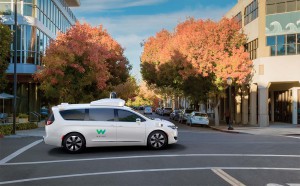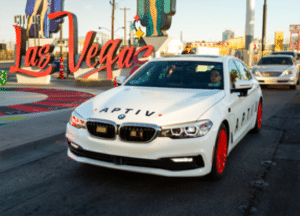
Waymo’s autonomous ride service, Waymo One, is already in service, using Chrysler Pacifica minivans.
As automakers and tech companies invest significant resources into the development of autonomous vehicles, many Americans remain uncertain about the potential role they want and believe those machines will play in their lives.
A new poll from the Partners for Automated Vehicle Education shows nearly 75% of people do not believe the technology is ready right now, and 20% said it will “never” be safe enough for them.
People were surveyed in late February and early March, according to the group, and while it’s not all doom and gloom when it comes to the beliefs Americans hold about self-driving vehicles, there are hurdles to clear before Americans are going to hop willy nilly into a vehicle they won’t control.
(AV testing miles in California jumped 40% in 2019.)
“The results of this survey confirm that autonomous vehicles face major perception challenges, and that education and outreach are the keys to improving trust,” said Tara Andringa, executive director of PAVE. “These insights provide both motivation and direction to our effort to confront this educational challenge.”
Some of the results that must have car companies and others worried about the long-term prospects for autonomous vehicles include:
- 48% of Americans say they “would never get in a taxi or ride-share vehicle that was being driven autonomously”
- 34% think the advantages of AVs outweigh any potential disadvantages
- 18% would be willing to put their name on a waiting list for the first autonomous vehicle
The news isn’t all bad as that on some level they seem to think that automakers will eventually get the technology right because 58% believe AVs will be available
in 10 years. Perhaps more importantly, people have positive feelings about much of the technology already in use – advanced driver assistance systems, or ADAS – that are essentially the underpinnings of future autonomous vehicles.
Those who have vehicles with ADAS features were more likely to believe the advantages of AVs outweigh the potential disadvantages, especially those with vehicles with active parking assist, heads-up display and lane-keeping assist.
More than four out of five vehicle owners who owned cars, trucks or utility vehicles were said they believed they had a good understanding of how the safety features in their car worked. However, most of the 1,200 survey respondents suggested their understanding of autonomous vehicles was “quite low.”
(Few Americans ready to trust autonomous vehicles.)
This means that companies and perhaps government agencies have some work to do when it comes to educating the public about self-driving vehicles.
The polling data certainly supports that assertion as 60% said they would trust AVs more if they better understood how they technology worked (23% said it wouldn’t change their opinion) and 58% said they’re more likely to trust them more if they could take a ride in one (24% said it wouldn’t matter).

Tesla CEO Elon Musk recently told analysts and media that he expected the company’s full self-driving technology would be ready by the end of the year.
Despite the fact that companies like Waymo, which has been running driverless shuttle service around Phoenix for more than a year, and others have been providing rides for a while, the “good” news about those experiences aren’t getting to the masses. Then again, neither is the bad news as more than 80% said they hadn’t heard or knew very little about crashes involving Tesla and Uber self-driving vehicles.
One segment of the population that did view AVs favorably are disabled people who have mobility issues. The study carved out a section of its results specifically aimed at them. The poll found this community is somewhat more positively disposed toward key AV concepts and somewhat more knowledgeable about AVs than the general public – and their optimism about the future of AVs is similar to that of the general public.
“These findings demonstrate that blind Americans and others with disabilities are enthusiastic about the potential of automated vehicles to enhance our mobility and independence,” said Mark Riccobono, President of the National Federation of the Blind. “We look forward to assisting in the planned public education efforts and continued research that will be guided by this recent polling data.”
(Power study finds “total lack of trust” in autonomous vehicle technology.)
The Partners for Automated Vehicle Education is a coalition of industry and nonprofit partners working to improve public understanding of advanced vehicle technologies in order to maximize the potential benefits in safety, mobility and sustainability.

